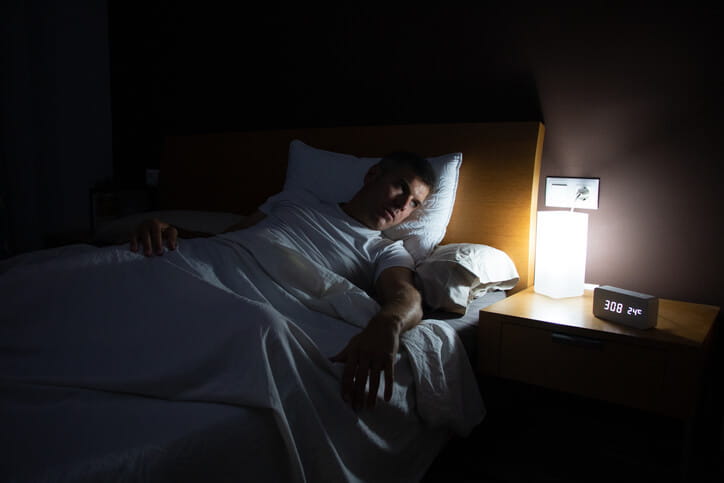Subscribe to the Baptist Health Podcast to Hear All Episodes
Including 4 Sleep Disorders

The moment your head hits the pillow, your mind begins to race. You’re thinking about everything. Your job, finances, that thing you said (or didn’t say), and a long list of other things that make you anxious. Then, you check the time and it’s much later than you thought. Sound familiar? Anxiety and sleep are intertwined, and one can affect the other.
Sometimes, it’s hard to tell whether you’re having trouble sleeping because you’re anxious, or you’re anxious because you’re having problems falling asleep. Stress or anxiety can cause sleeping problems or worsen the ones you already have. Researchers have found that the relationship between sleep problems and anxiety are bidirectional, which means sleep problems can cause anxiety and anxiety can disrupt your sleep.
Both anxiety and sleep problems can impact how you function emotionally, physically, and mentally.
Including 4 Sleep Disorders
Insomnia is a common sleep disorder that’s characterized by the inability to fall asleep or stay asleep for extended periods of time. Anxiety is characterized by intense, excessive, and persistent worry and fear about everyday situations. Occasional anxiety is normal and not a cause for concern, but many people develop more acute, recurring, and overpowering anxiety, which can affect overall health and ability to sleep well.
Some people suffer from both anxiety and insomnia, with each symptom being independent of the other. Because these two conditions can exacerbate each other it can be difficult to treat both independently.
If you’re experiencing anxiety at night and it’s hampering your ability to sleep, here are some things you can do relax your mind:
For more information on common sleep problems, contact the Baptist Health Sleep team today.